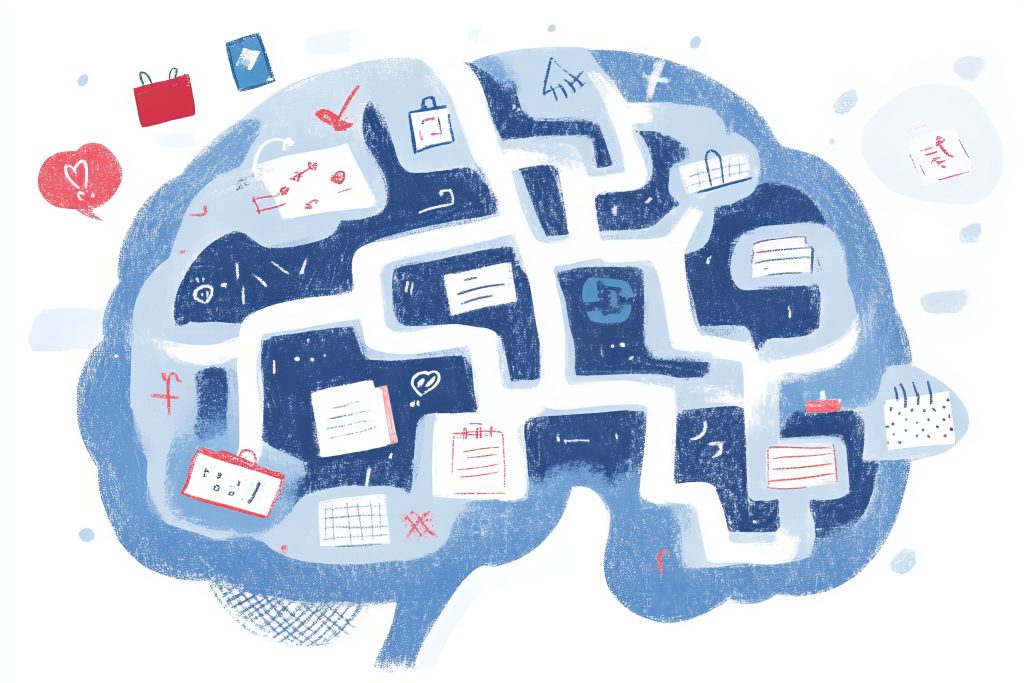
The estimated prevalence of adult ADHD in the United States is often cited at 4.4%, referencing a 2021 report on the results of the National Comorbidity Survey [1]. Many studies have documented the impact of untreated adult ADHD on morbidity and mortality. Adult ADHD is also associated with an increased risk for anxiety disorders, bipolar disorder, major depression, substance use disorders, and intermittent explosive disorder.
Our PCL program has received numerous calls regarding the treatment of adult ADHD. Frequently, the questions surround the use of non-stimulant medications. Additionally, there are patients who would prefer to try non-pharmacologic interventions before considering augmentation with a medication.
Cognitive Behavioral Therapy (CBT) has shown efficacy for adult ADHD in multiple research trials. CBT has not only been shown to be effective for core ADHD symptoms, but several adult studies have also noted a benefit for CBT in certain quality of life measures. Many participants note that CBT can be a game changer for procrastination, for example. CBT for ADHD also helps patients challenge their negative self-beliefs, which can improve co-morbid mood and anxiety symptoms.
Atomoxetine is a norepinephrine reuptake inhibitor that is FDA-approved for adult ADHD. This medication is not a stimulant and has almost no abuse potential. Both atomoxetine and stimulants are more effective than placebo for adult ADHD. Most algorithms refer to atomoxetine as a 2nd-line medication intervention (with stimulants being 1st-line). However, there are no blinded, head-to-head trials comparing these two classes.
Atomoxetine is metabolized by cytochrome p450 2D6 and thus there are potential drug interactions. It also has a Black Box Warning for suicidality in certain patient populations. Atomoxetine can trigger mania or hypomania, which is especially notable given the higher rate of bipolar disorder in adults with ADHD. For a complete list of atomoxetine’s potential side effects, please refer to medication reference material (MicroMedex, etc.).
If you would like more information on treatment options for adult ADHD, please call the Psychiatry Consultation Line (877-WA-PSYCH/877-927-7924) and one of our psychiatrists would be happy to review the data with you and how it applies to your patient. Similarly, if you have questions regarding treatment of ADHD in perinatal patients, please contact our Perinatal Psychiatry Consultation Line at 877-725-4666.
[1] Kessler RC, Adler L, Barkley R, Biederman J, Conners CK, Demler O, Faraone SV, Greenhill LL, Howes MJ, Secnik K, Spencer T, Ustun TB, Walters EE, Zaslavsky AM. The prevalence and correlates of adult ADHD in the United States: results from the National Comorbidity Survey Replication. Am J Psychiatry. 2006 Apr;163(4):716-23. doi: 10.1176/ajp.2006.163.4.716. PMID: 16585449; PMCID: PMC2859678.
Author
Dr. Kimmel is the Chief of Psychiatry at both UWMC campuses, Montlake and Northwest, and Director of Psychiatric Consultation and Telepsychiatry Programs, including the Psychiatry Consultation Line. His clinical focus is on working with patients who are hospitalized with simultaneous psychiatric and medical issues. Academically, Dr. Kimmel most often teaches psychiatry trainees about psychopharmacology for refractory mood, anxiety, and psychotic disorders.
Related Resources
UW Psychiatry and Addictions Case Conference (PACC)
Cognitive Behavioral Strategies for ADHD, presented by Katherine Walukevich-Dienst, PhD
ADHD Update: Clinical and Diagnostic Issues, presented by Mark Stein, PhD, ABPP
Treating ADHD in the Setting of Bipolar Disorder, presented by Kimiko “Koko” Urata, MD
The UW PACC is a free, weekly teleconference connecting community providers from across Washington with UW Medicine psychiatrists, psychologists, and addictions experts. Sessions include both an educational presentation and (de-identified) clinical case presentations allowing providers an opportunity to receive feedback and recommendations from interdisciplinary attendees. CME is available for free or for a small fee. Visit the PACC website for more information.